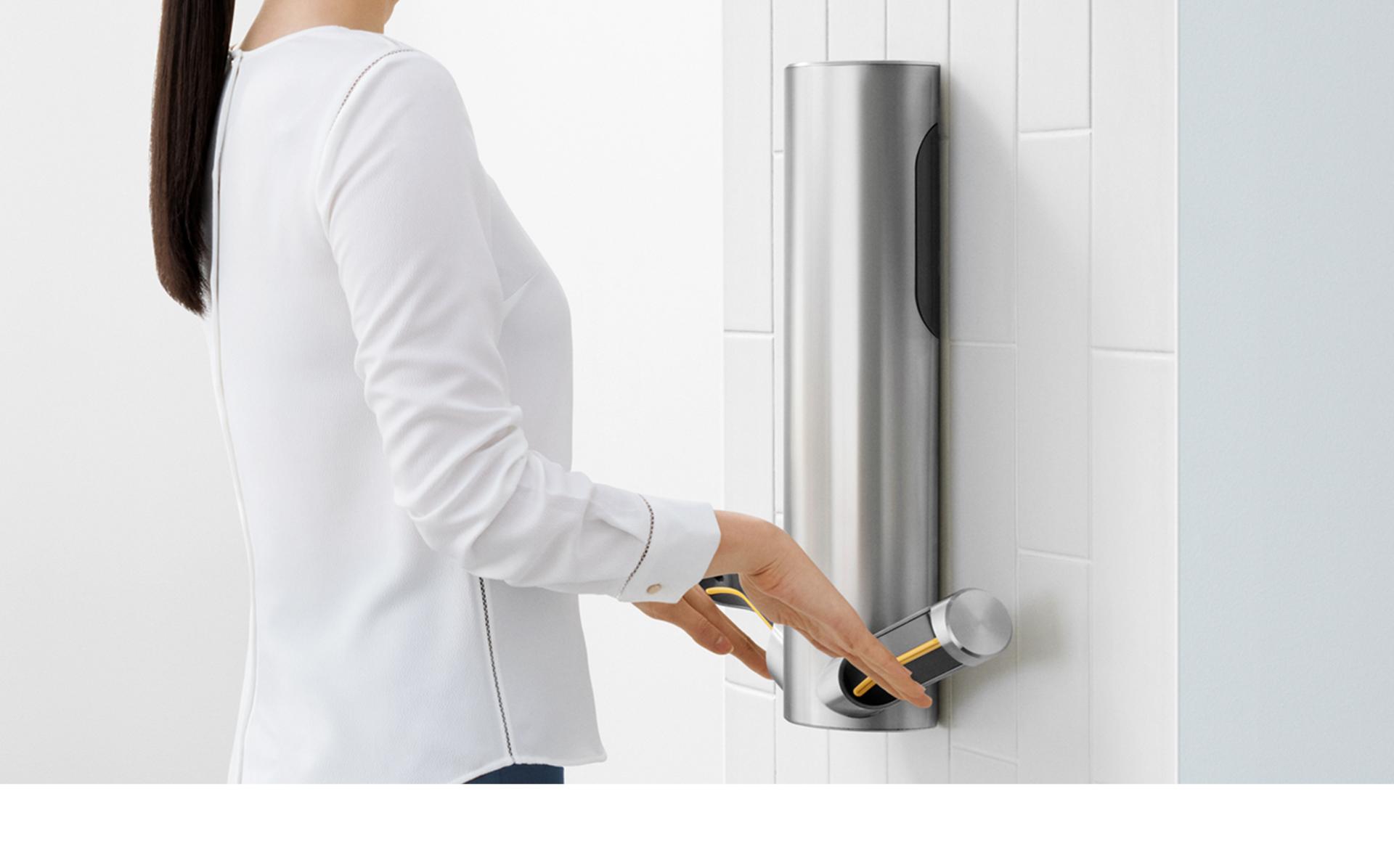New standard of hygiene, or same old habits?
Since the Coronavirus pandemic started, 66% of people are less likely to leave a washroom without washing their hands. In a recent global hygiene study, Dyson looked at how attitudes towards the washroom and general hand hygiene have changed since COVID-19 started.
25 March 2021
-

-
As the world edges its way out of lockdown, and people head back to the office and public spaces again, Dyson investigates attitudes towards the washroom and general hand hygiene.
The message from leading organisations, such as the WHO, both during and after the pandemic has been clearly focused on the importance of frequently washing your hands properly, and the vital role thoroughly dry hands play. Experts have noted that hands can transfer germs if not washed correctly and that practising good hand hygiene is one of the most effective ways to reduce the spread of bacteria and viruses, which could lead to infection.
Dyson’s global handy hygiene study
Results from the Dyson global study show that whilst people are more conscious of the importance of hand hygiene since the pandemic started, 11% of people globally admit that they are more likely to leave the washroom without washing their hands, and 42% of people feel a lot more concerned visiting a public washroom compared to this time last year. In the US, 20% of male and younger people (19-29 years) are more likely to leave a public washroom without washing their hands.
Hands up for hygiene
The study also found that while respondents were concerned with hand hygiene, some still disregard the importance of hand washing and drying: leading health organisations stipulate you must wash your hands frequently with water and soap for at least 20 seconds – as well as dry your hands properly. The study revealed that since the outbreak only 40% of people stated hygiene considerations as their main purpose for washing their hands, for some it was just a habit (14%) and a small number like the feel of clean hands (11%). However, it also found that if the washroom has no working hand dryers or paper towels, some respondents were likely let them dry naturally (25%) or dry them on their trousers or top (15%).
Dr Salome Giao, Senior Microbiologist and Scientist at Dyson explains, “These results highlight the need for further education on hand hygiene. We know damp hands can transfer up to 1000 times more bacteria than dry hands2, while wiping hands on clothes can jeopardise the hand washing process, as they can add bacteria to the washed hands if they are not clean.3”
Look, but don’t touch
The global study also revealed that poorly maintained washrooms can cause people to feel frustrated. When it comes to public washrooms the main frustrations globally are unclean toilets (70%); lack of toilet paper (51%) and unclean washroom common areas (48%). Comparing to the same time last year, there was a portion of people who were more concerned around using hand dryers but some of the biggest hygiene concerns related to using hand dryers were having to press physical buttons (40%) and drying hands with unclean air (32%). 58% selected touchless activation of a hand dryer as one of the features which would put their mind at ease when using a hand dryer, and a further 47% stated that including filters, which clean the air used to dry their hands would also ease their concerns when using a hand dryer.
Dyson Airblade™ technology is one way to ensure your hands are dried quickly and hygienically, particularly in public washrooms. Dyson Airblade technology is touch-free, which helps prevent the spread of bacteria and some viruses and has HEPA filters fitted as standard. For over 15 years Dyson microbiologists have drawn on expertise from a range of sectors, including the food industry, the public health sector, academia and chemical microbiology – to ensure its Dyson Airblade™ technology is hygienic for real-world use.
Background information
This survey was conducted online between 13th and 28th of July 2020, with a total of 8,758 interviews. Nationally representative samples in terms of age, gender and region in the following countries:
- UK n=544
- Germany n=520
- Italy n=566
- Spain n=574
- France n=557
- Netherlands n=518
- US n=1094
- Canada n=525
- Mexico n=598
- China* n=1000
- Singapore n=561
- Japan n=571
- Malaysia n=580
- Australia n=544
- * In China, the survey has been conducted in four cities Beijing, Shanghai, Shenzhen, Chengdu (n=250 for each city region)
Press Contact
ANZ Press Office
Email: aupressoffice@dyson.com
Dyson Newsroom
The latest news from Dyson
 Call us
Call us Email us
Email us Request a meeting
Request a meeting Live chat
Live chat